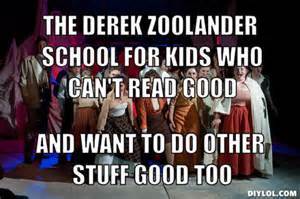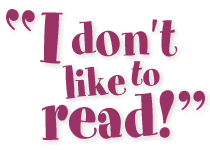Top 3 ways parents can help Reluctant Readers

These days, kids who are not confident readers are labelled 'reluctant.' This to me seems a very generic word that doesn't take into account the many and varied reasons a child is not reading at their 'age appropriate' level. As a parent, you need to take charge of this. Here are some very simple ideas you can look into, to get a more comprehensive explanation about why your child has been put in the 'too hard' basket.
First, have their eyes checked. Most optometrists recommend your children be examined every year for families with older siblings/parents who wear glasses and every two years otherwise. Kids don't know if their vision is unclear, but you can see tell tale signs of squinting, holding the book too close or far away and getting headaches after school. In most cases, eye checks are bulk billed so it wont cost you anything to check.
Secondly, set a trap to catch your child reading. It is important watch your child at home to find out their reading habits. Its a good idea to look and see if they are independently reading to themselves if there are books 'left out' for them to pick up. If they have no problems reading and understanding an age appropriate book in their heads, you might find the real problem lies with them not wanting to read out loud. Unfortunately, this is the only way a teacher can determine if they are reading correctly so you need to get them used to it, at least just for school. A good thing to mention is that they don't have to read aloud forever, just until the teacher can see they are reading all by themselves.
If they are still struggling, here are some simple tips to get them used to the sound of their own voice.
Step1: get them to hum while they are reading, not saying any words, just making a sound so they have to learn to read and listen to their own voice at the same time.
Step 2: start saying the words but in a very flat, low monotone voice, with no expression. It is harder than it sounds and the kids will soon learn that it is easier to read with a natural intonation.
Step 3: when they are confident, as the teacher for a private before or after school appointment and have your child read them with no other kids listening so they can see the level of reading your child is actually attaining. Hopefully then, if you have a good teacher, they can help your child with other confidence boosting techniques in the class room to encourage them to read in front of others.
Thirdly, if your child is really struggling with learning to read, have them independently assessed by a speech pathologist. Many learning difficulties are overlooked because children fudge through reading time and are kept at a level under their actual comprehension in their early years of schooling and then slip through the cracks in older grades when reading becomes more independent. You know your child better than anyone else, and teachers have so much pressure on them these days with work load and extra responsibilities, it is our responsibility as parents to take matters into our own hands and go into bat for our kids when we know something is just not quite right.
Of course, the other way is just to take them to the book store and library and let them dig around until something catches their attention. It only takes one book where children can see their own reflection for them to become life long readers.
So when your 'reluctant' reader says to you:
 take the time to dig a little deeper and don't let your square peg be dismissed because they don't fit into the system's round hole. Reading is a life skill that is essential to all future endeavours and you can never do too much to ensure your child feels comfortable learning to read. It is absolutely within your power to give your child the gift of reading. Talk soon,x Michellewww.michelleworthington.comwww.michelleworthington.com
take the time to dig a little deeper and don't let your square peg be dismissed because they don't fit into the system's round hole. Reading is a life skill that is essential to all future endeavours and you can never do too much to ensure your child feels comfortable learning to read. It is absolutely within your power to give your child the gift of reading. Talk soon,x Michellewww.michelleworthington.comwww.michelleworthington.com
Published on November 09, 2015 08:00
No comments have been added yet.



